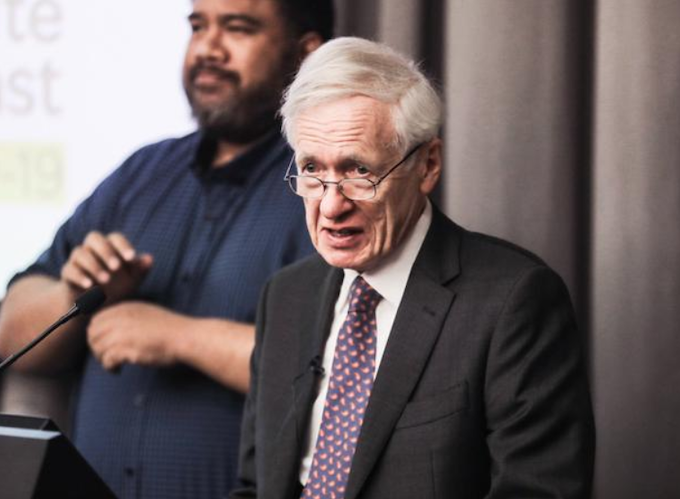
Epidemiologist Sir David Skegg, who along with his team has been providing advice to the New Zealand government on the covid-19 response, says more border restrictions may ease soon, as the opposition National Party calls for all visitors to be allowed into the country.
Yesterday, the government announced that from 11.59pm on Wednesday, vaccinated New Zealanders returning to the country and who test negative on pre-departure will no longer have to self-isolate on arrival.
The move brings forward step two of the phased reopening of the border, but the National Party says that does not go far enough and is calling for the border to be open to all visitors, to jump-start the tourism industry.
The government relied on urgent advice from the Strategic Covid-19 Public Health Advisory Group — chaired by Sir David — before making the changes.
Sir David told Morning Report the next few weeks were expected to be very challenging on the health system as the peak of the omicron outbreak evolves, so it was best to wait until then before making decisions about opening to tourists.
“We still don’t know where it’s going to end. The number of people going into hospital every day is increasing, so I’m not surprised that they’re [the government] just going to take a bit of time to decide about that, but I expect that tourists will be welcome to New Zealand earlier than we expected,” he said.
“And it’s funny everyone calls for certainty, but actually this is a case where the uncertainty has been beneficial to those interests because the dates are coming forward.”
Tourism industry planning
However, National Party Covid-19 response spokesperson Chris Bishop told Morning Report that the tourism industry needed that certainty from now to plan ahead.
“If you talk to people involved in the tourism industry, they are literally borrowing money on their credit cards, mortgaging their houses to try and get through. And so what we can do for them is reconnect New Zealand to the world, open those borders, and allow tourists to come here,” he said.
“You’re probably not going to see a massive influx of tourists straight away in the next two to three, four weeks, you know, airlines have got to put flights on.
“But it is really important that we send signal to the airlines and to the airport that tourists are going to come and they’re going to come soon because airlines are making those bookings for the next few months and the next year right now so they do need some certainty, they do need that time frame.”
Bishop said while there would be some risk in such a decision, it was about considering the “relative risk”.
“The relative risk of allowing people who are vaccinated, who have passed the pre-departure test, to arrive into New Zealand, going into a country with one of the highest reproduction rates in the world right now and with 15,000 covid cases per day, the relative risk is much lower.
“But you’ve also got to weigh that up against the incredibly tough circumstances that our tourist parts of the economy have been in over the last two years.”
‘Minimal effect’ on NZ
On the other hand, Bishop said yesterday’s announcement was undoubtedly good news for the grounded New Zealanders who would be excited to once again be able to see their friends and whānau here.
Sir David said the changes announced yesterday would only have a “minimal effect” on New Zealand’s situation.
“The impact of this on the progress of our epidemic in New Zealand will be very small, really quite slight. The fact is that we’ve got thousands of new cases occurring every day … the number of people turning up at the airport who are infected at the moment it’s an average of about 10 a day.
“That number will go up, of course, with more people coming into New Zealand, but it will have a minimal effect on our epidemic.”
The government has asked the advisory group to now review the role of vaccine passes and mandates for the future.
This article is republished under a community partnership agreement with RNZ.











































